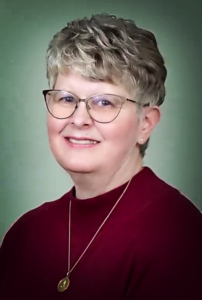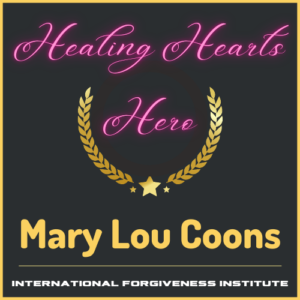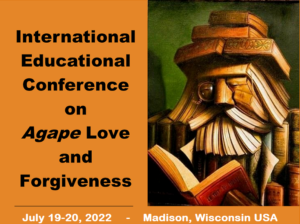Tagged: “Children”
I am a parent with a child who is angry. This started when my husband divorced me. I say my child is angry because of rather quick temper tantrums. Yet, when I talk with him about his anger, he is in denial, telling me that he has no anger. What advice do you have for me to begin helping him to see that, indeed, he is angry, actually quite angry?
First, I think you need patience with your child. He is deeply hurt because of the divorce. I say that because you say his temper tantrums began in the context of the divorce. Rather than discussing his anger, I recommend that you gently talk with him about his wounded heart. Give him time to see that he is deeply hurt by his father leaving. Once he can see this, then talking about forgiveness is a next step. Once your child has the safety-net of forgiveness (that can lessen hurt and anger), he then likely will be open to seeing that he is angry and that there is a solution to it–forgiveness.
Partnership Achievement Award Presented to Mary Lou Coons
Mary Lou Coons, founder of the Puppets For Peace Foundation, has been recognized with the “Healing Hearts Hero Award” by the International Forgiveness Institute (IFI). The award recognizes exceptional efforts by individuals who have partnered with the IFI and its co-founder, Dr. Robert Enright, to advance the broader understanding and application of the virtue of forgiveness.

Mary Lou Coons
An always-cheerful optimist, Mary Lou excels at using every tool available to her to overcome life’s adversities–like the brain and spinal cord maladies that have caused her to endure years of debilitating pain as well as repeated life-threatening (and life-saving) surgeries.
In fact, just days after her second Chiari Malformation brain surgery (technically known as posterior fossa decompression surgery) in 2012, Mary Lou made her first call to the IFI after learning that Dr. Enright was pioneering Forgiveness Education work with children. She was convinced that her passion for ventriloquism and puppets could somehow supplement those efforts so she volunteered her services.
In the ten years since then, Mary Lou has become a self-appointed “forgiveness ambassador” on a mission to teach as many others as she can about the benefits of forgiveness. Her efforts have included:
- Single-handedly convincing her parish elementary school (Holy Family School, Syracuse, NY) to adopt and teach Forgiveness Education in all of its classrooms from pre-kindergarten through 6th grade;
- Organizing and setting up a display booth to promote forgiveness to the more than 1,000 attendees at a Women’s Conference in Syracuse – resulting in more of the state’s schools considering the use of Forgiveness Education Curriculum Guides;
- Creating and producing three video recordings featuring her red-haired puppet Lily that are used by elementary school teachers to help illustrate Forgiveness Education principles to students;
- Introducing IFI staff to teacher-missionaries in Rwanda in order to add that country to the list of more than 30 around the world where Forgiveness Education is being taught;
- Producing a 10-minute online video version of Rising Above the Storm Clouds, Dr. Enright’s storybook for children, that is used in the 3rd and 4th grade programs.
 “Despite all that activity, Mary Lou never asked for a penny of payment or reimbursement,” Dr. Enright said in recognizing her with the Healing Hearts Hero Award. “Through the Puppets for Peace Foundation she set up 15 years ago, she continues to make important contributions that focus particularly on the lives of one of our most important assets—our children.”
“Despite all that activity, Mary Lou never asked for a penny of payment or reimbursement,” Dr. Enright said in recognizing her with the Healing Hearts Hero Award. “Through the Puppets for Peace Foundation she set up 15 years ago, she continues to make important contributions that focus particularly on the lives of one of our most important assets—our children.”
According to Mary Lou, the mission of her foundation is “to help spread peace, love and forgiveness. One of the best ways I’ve found to do that is by working with Forgiveness Education programs because it brings happiness to my heart as well as to the hearts of so many others.”
Visit the Puppets for Peace Foundation website.
How to Become a Better Forgiver
We all know that forgiveness is neither simple nor easy. It can be a challenging process. But new tools are being developed that can help you cut through the clutter, sharpen your “forgive-ability” skills, and become a better forgiver. One of those tools was recently released by the
Greater Good Science Center (GGSC), a California organization that sponsors groundbreaking scientific discoveries.
“Eight Essentials When Forgiving“ is a simple practice technique that provides concrete guidelines while breaking down the forgiveness process into easily manageable components. The 8-step exercise is based on the “backed-by-science” work of pioneering forgiveness researcher Dr. Robert Enright, a University of Wisconsin-Madison educational psychology professor and co-founder of the International Forgiveness Institute (IFI).
Specifically, the exercise focuses on Dr. Enright’s basic forgiveness principles in order to help you:
- narrow and understand whom to forgive;
- name and describe your pain;
- understand the difference between forgiving and excusing or reconciling;
- think about the person who has caused you pain in a novel way so you may begin to feel some compassion for them and reduce the ill will you hold toward that person.
The GGSC forgiving exercise also attunes users to residual pain from their experience and encourages them to find meaning and some positivity in it. Step-by-step instructions are included along with scientific evidence that forgiveness works. GGSC also cautions that in certain cases it may help to consult a trained clinician, especially if you are working through a significant traumatic event.
The Greater Good Science Center is part of the University of California, Berkeley. It not only studies the psychology, sociology, and neuroscience of well-being but also “teaches skills that foster a happier life and a more compassionate society–the science of a meaningful life.”
 Other practice exercises and forgiveness-related resources available on the GGSC website include:
Other practice exercises and forgiveness-related resources available on the GGSC website include:
- Introducing Kids to Forgiveness
- Nine Ways to Help Siblings Get Along Better
- 8 Keys to Forgiveness
- A Different Way to Respond When Kids Do Something Wrong
- Forgiveness Quiz: How Forgiving Are You?
What is the evidence that children can be taught to forgive? Is there any evidence that when children learn about forgiveness that they actually begin to forgive those who have hurt them?
Yes, there now are scientifically-based forgiveness programs, many of which focus on stories and story characters who experience conflict and learn to resolved those conflicts. The research shows that children and adolescents, when given a sufficient amount of time (12 or more weeks) to think about forgiveness, actually forgive to a deeper level than before they had these programs. Here is a reference to a journal article showing this to be the case: Rapp, H., Wang Xu, J., & Enright, R.D. (2022). A meta-analysis of forgiveness education interventions’ effects on forgiveness and anger in children and adolescents. Child Development.
A Reflection on the International Educational Conference on Agape Love and Forgiveness, Madison, Wisconsin, July 19-20, 2022
Main Point 1: Despite cross-cultural differences, forgiveness has a common meaning across historical time and across cultures.
Main Point 2: To my knowledge, there never has been a conference on agape and forgiveness before this one.
Main Point 3: It is time for modern culture to reawaken the ancient moral virtues of agape and forgiveness for the good of individuals, families, and communities.
After over a year of detailed preparation by Jacqueline Song and the dedicated team, the agape love and forgiveness conference is now history. That history is preserved in the videos which have captured each talk presented at the conference (the videos are available here: Agape Love and Forgiveness Conference Videos).
I have at least three take-away points as I reflect on this conference:
- The cultural diversity was strong, with presentations by people from Israel, Northern Ireland, the Philippines, Taiwan, and the United States. Despite the wide cultural differences, one thing
 was clear: The meaning of both agape and forgiveness do not change as we get on an airplane and visit cultures that are far away from one another. Instead, the core meaning of agape remains in that as a person loves in this way, it is for the other person(s) and the expression of this love can be challenging for the one who willingly offers it. The core meaning of forgiveness remains as a person, unjustly treated by others, a) makes the free will decision to be good to those who acted unfairly, b) sees the inherent worth in those others, c) feels some compassion for them, d) willingly bears the pain on those others’ behalf, and e) offers goodness of some kind toward them. Yes, those who forgive may not reach all five of these characteristics, but they remain the goal, that to which we want to strive if excellence in forgiveness is our end point. Yes, there are important cultural nuances as one Islamic educator introduced forgiveness to the students with quotations from the Qu’ran and as an educator from a Christian school opened the New Testament to the students. The rich diversity had a glue that bound all together—-the objective reality of what these two moral virtues mean across historical time and across cultures. Objective meaning met cultural nuance at the conference.
was clear: The meaning of both agape and forgiveness do not change as we get on an airplane and visit cultures that are far away from one another. Instead, the core meaning of agape remains in that as a person loves in this way, it is for the other person(s) and the expression of this love can be challenging for the one who willingly offers it. The core meaning of forgiveness remains as a person, unjustly treated by others, a) makes the free will decision to be good to those who acted unfairly, b) sees the inherent worth in those others, c) feels some compassion for them, d) willingly bears the pain on those others’ behalf, and e) offers goodness of some kind toward them. Yes, those who forgive may not reach all five of these characteristics, but they remain the goal, that to which we want to strive if excellence in forgiveness is our end point. Yes, there are important cultural nuances as one Islamic educator introduced forgiveness to the students with quotations from the Qu’ran and as an educator from a Christian school opened the New Testament to the students. The rich diversity had a glue that bound all together—-the objective reality of what these two moral virtues mean across historical time and across cultures. Objective meaning met cultural nuance at the conference.
- Unless I missed something in my travels with forgiveness over the past 37 years, I do not think there ever was an international conference that focused specifically on the moral virtues of agape and forgiveness. If this is true, why is it the case? What has happened within humanity so that these two key moral virtues, so prominent for example in Medieval times, would be characteristically ignored in educational contexts with children and academic contexts in university settings? I think the transition from accepting objective truth about moral virtues (for example, justice is what it is no matter where we are in the world even when there are cultural nuances) has given way to an assumption that relativism is the new truth and so we all can choose the virtues we like and define them as we wish. Do you see the contradiction in such a statement? In the abandonment of objective reality that there is a truth, the new thinking is that relativism (in which there is no truth) is the new objective truth. It is time to reintroduce communities to the moral virtues, which we all share as part of our humanity. We need to know what these virtues are by definition and how we can give them away to others for their good, for our good, and for the good of communities.
- When I look across the globe at communities that have experienced conflict, that now carry the weight of the effects of decades and even centuries of conflict, I have come to the conclusion that a reawakening of the moral virtues of agape and forgiveness is vital if we are to heal from the effects of war and continued conflict with all of its mistrust and stereotyping of the human condition. Agape and forgiveness challenge us to see the personhood in everyone with whom we interact, even those who are cruel to us. This does not mean that we cave in to injustices because the moral virtue of justice requires fairness from all. The healing of hearts, families, communities, and nations will be better accomplished if people now can shake off the dust from agape and forgiveness, that have been so ignored in modernism, and find a new way with the old virtues. It seems to me that agape and forgiveness, as a team, is a powerful combination for the healing of trauma for individuals and relationships. I fear a continuation of the same old conflicts in hearts and in interactions if we do not go back and rediscover the life-giving virtues of agape love and forgiveness and bring them forward now in schools, families, houses of worship, and workplaces.
Robert



